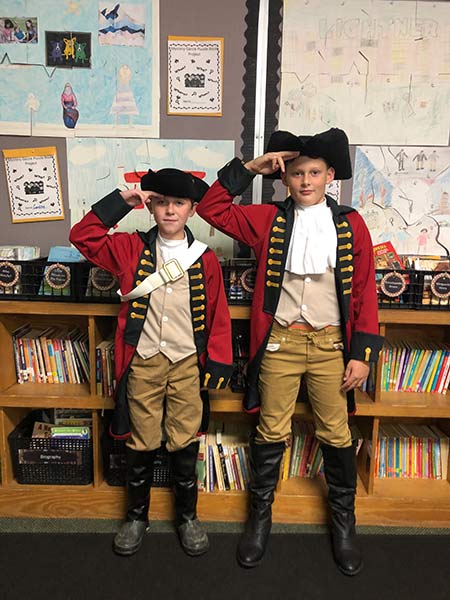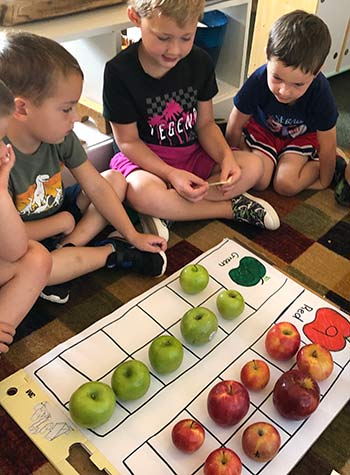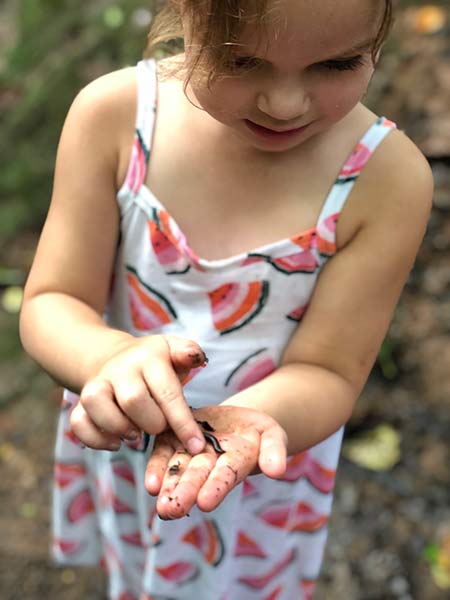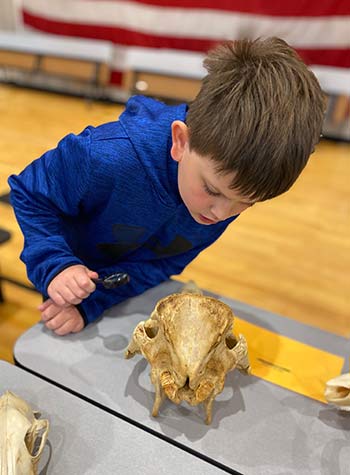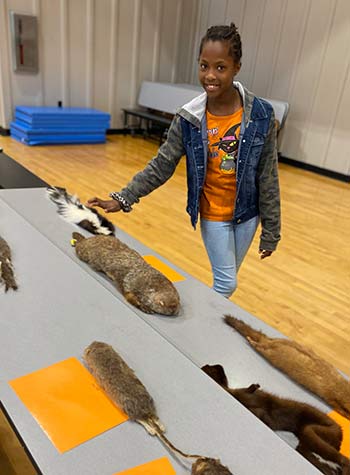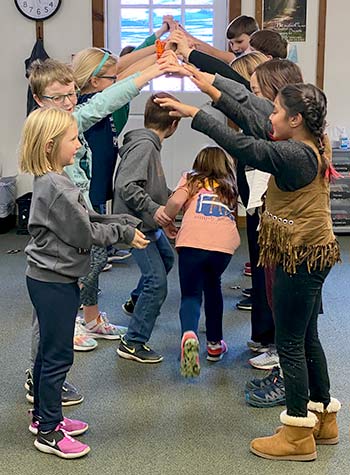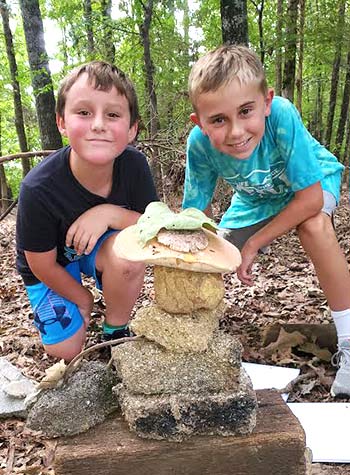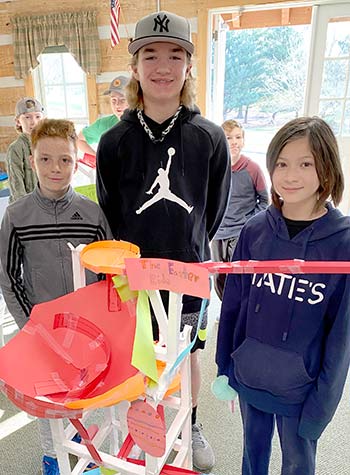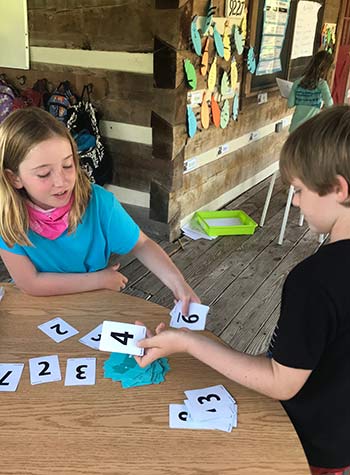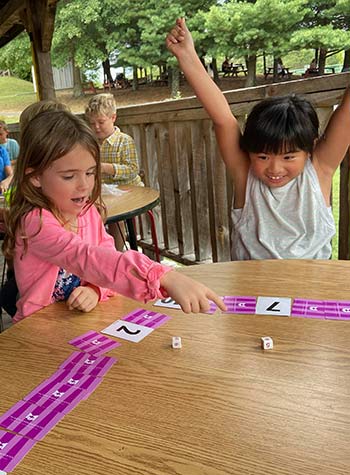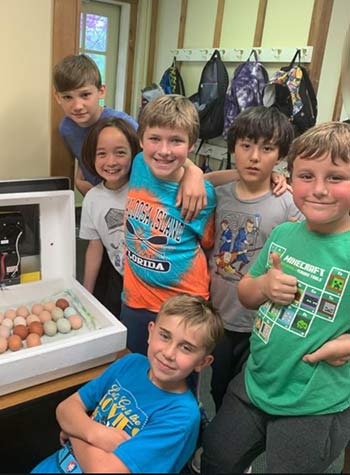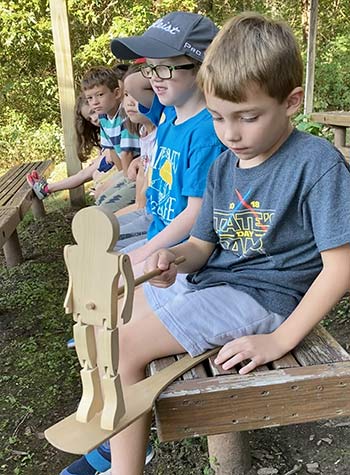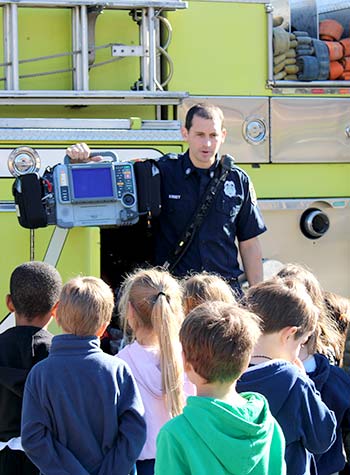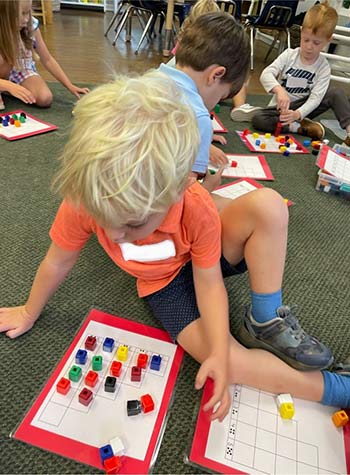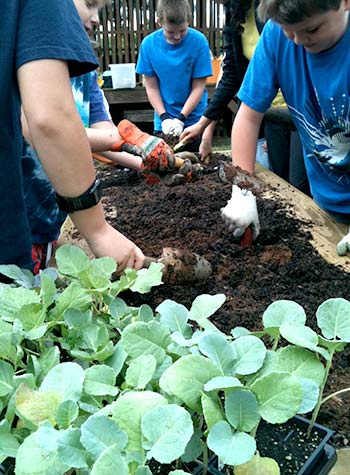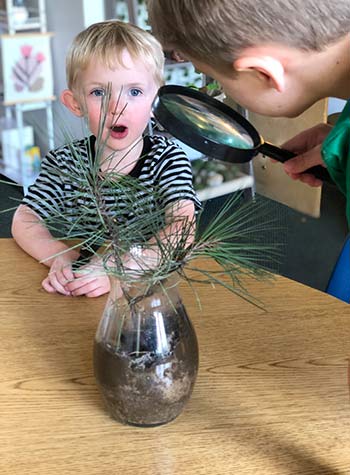Hands-on Learning
Hands-on learning is our area of expertise. Learning by doing, often called experiential learning, allows a child to learn from real world experiences. Preschool and Kindergarten children learn best when they can move, explore, and engage all five senses. Exploring using their senses allows children to learn through trial and error and build critical thinking skills. Manipulatives, water play, geoboards, blocks, play dough, clay, finger painting, glue, and sand are among many materials we use in our preschool and kindergarten classrooms to enhance hands-on learning.
Our expert educators across all grade levels utilize our nature-filled campus to create an unparalleled educational experience for our students.
Hands-on learning is very important because it:
- engages all five senses
- interests students quickly
- stimulates multiple areas of the brain
- is FUN
- improves listening skills
- increases the brain’s ability to retain information effectively
Getting students to connect and enjoy what they are learning is an everyday practice at Tate’s. Hands-on activities create self-confidence and generate excitement about the lesson being taught. It gets the children up and moving and their brains revved up for learning. Decades of research proves that active learning is much more effective and produces better educational outcomes. Come experience the Tate’s difference for yourself!
Civil War Re-enactment Firing a Cannon
LIVING HISTORY
Research suggests that students have much to gain by experiencing a living history project. Multiple grade levels have the opportunity to bring history to life by wearing period clothing, engaging in historical research, meeting period re-enactors and so much more. Yes, it is fun, but student outcomes are historical literacy, research skills, and presentation experience to name a few. Tasting the hard-tack and beans eaten by civil war soldiers or crafting a lantern used during the colonial time period, makes history come alive and memories that last a lifetime.
PET THERAPY
Tate’s School has a long history of companion animals on campus. Prince, a beautiful black horse and Maudy, a donkey rescued from a test lab, spent approximately 20 years on campus. Their legacy continues on campus today through our “paw”rtnership with the University of Tennessee’s College of Veterinary Medicine certified companion dogs. Here at Tate’s, the dogs add a new level of interest to academic challenges. If measurement is being taught, students might measure how many paw prints it takes to cross the sidewalk. A creative writing assignment might include interviewing the dog and creating a story all about the dog’s adventures. Pet therapy is a fun, unique way to support children’s learning and emotional well-being.
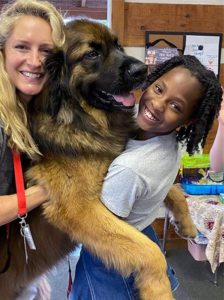
Therapy dog, Finn the Leonberger, with Jenn his handler, gives hugs to a student during a classroom visit.

